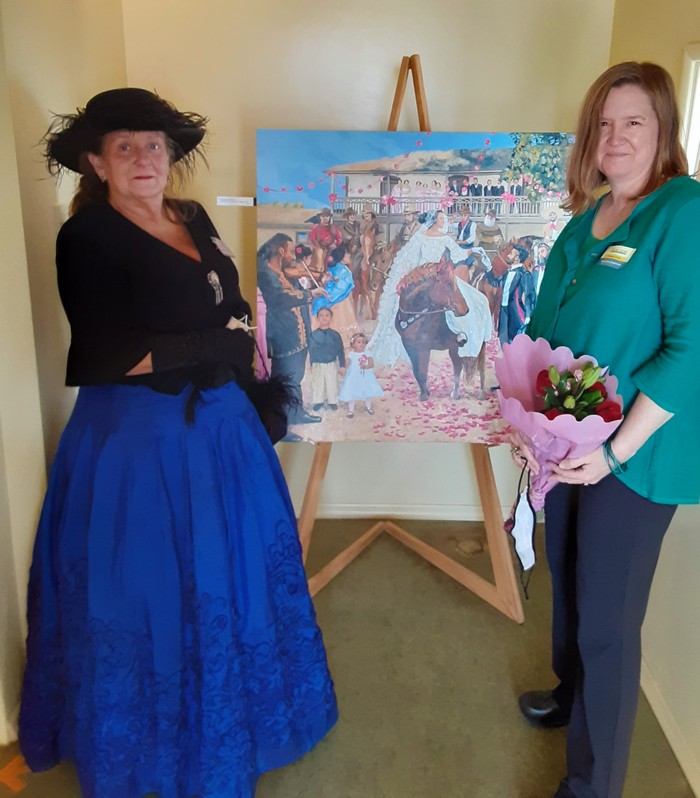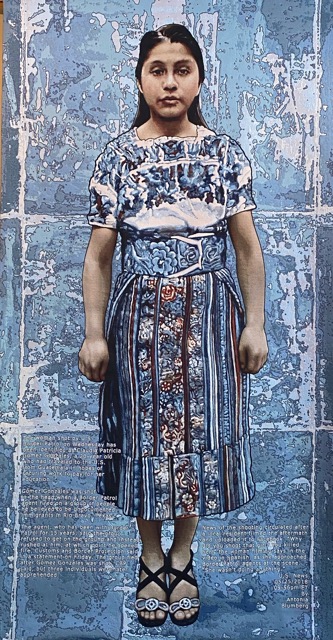 Laura Jean Jespersen was the featured artist at the al Fresco Art Exhibit held at the Olivas Adobe Historical Park held on Mother’s Day May 9. An added feature of the day was the rose garden in full bloom and the owls to be seen in the trees. Breeze staff member and Vice president of Olivas Adobe Historical Interpreters Mary Thompson enjoyed the painting by Laura which was inspired by the second son of Raymundo and Teodora Olivas Jose Nicholas Olivas.
Laura Jean Jespersen was the featured artist at the al Fresco Art Exhibit held at the Olivas Adobe Historical Park held on Mother’s Day May 9. An added feature of the day was the rose garden in full bloom and the owls to be seen in the trees. Breeze staff member and Vice president of Olivas Adobe Historical Interpreters Mary Thompson enjoyed the painting by Laura which was inspired by the second son of Raymundo and Teodora Olivas Jose Nicholas Olivas.
Ojai Eye: Master Photographers

Donna Granata’s portraits of Ojai artists, who have been extensively documented for the Focus on the Masters Arts Archive & Library, are part of a group exhibit at the Ojai Valley Museum. The exhibit was curated by Roger Conrad who said, “Not mere picture takers, they are artists. Their chosen subjects are refined to an essence that transcends banality.”
Museum Hours:
Fridays from 1pm to 7pm
Saturdays and Sundays from 10am to 4pm
Vol. 14, No. 17 – May 19 – June 1, 2021- Mailbox
To the Editor:
Mr. Editor, I must take issue to your statement found within the Opinion/Editorial section of your recent issue (May 5) under the sub-part “Georgia’s new sweeping elections law”.
In part you wrote: “No person shall solicit votes in any manner or by any means or method, nor shall any person distribute or display any campaign material, nor shall any person give, offer to give, or participate in the giving of any money or gifts, including, but not limited to, food and drink, to an elector,”.
I have been a native resident of California since 1943; with only a short vacation of 10-years in East Texas. From all that time it has been an election violation in California to have any voting campaigning or solicitations within several hundred feet of a polling place. The offer of food or drink would come under the same law if any campaign material (buttons, badges) were worn by the person offering food or water.
From watching, reading, and listening to various news reporting organizations it appears the state of Georgia is trying very hard to get in line with California. California, which has led the way in National issues for decades.
Michael Gordon
Michael: Just to clarity I just quoted Georgia law I didn’t write it.
Are you an amateur cartoonist? Send your cartoon to [email protected].
You only live once, but if you do it right, once is enough
~Mae West
Vita Art Center presents John Nava and David Kassan “ELEGIES” Paintings – Tapestries – Drawings
Claudia Patricia Gomez Gonzales Unique Jacquard Tapestry by John Nava.
Opening Event: Saturday, June 12 from 4-7pm., Reservations Required
$10 for non-members. Members free
Exhibit Dates: June 12 – August 14, 2021
Roya Kovensky, Survivor | Unique Jacquard Tapestry | Artist: David Kassan
These artists are holding the world to account. Both by the monumental scale of the tapestries and their exceptional technical prowess, Nava and Kassan command attention to their subject matter whether it be images of people who died while suffering hardships nobody should ever suffer or in the case of Kassan adults who once suffered monstrous hardships yet lived to tell their story; a story held in their bodily stance, a story that speaks of both defiance and dignity.
It is a curious shift in our historical focus that throws these two together. Figurative artworks were once outflanked in importance by a bold new abstraction, but with abstraction the ability to tell stories all but dried up. Instead abstraction often functioned as handy decor for corporations to inoculate their walls and entrances from difficult meanings.
28 West Main Street
Ventura, CA 93001
805-644-9214
Mother’s Day brings fun and renewed hope for area seniors
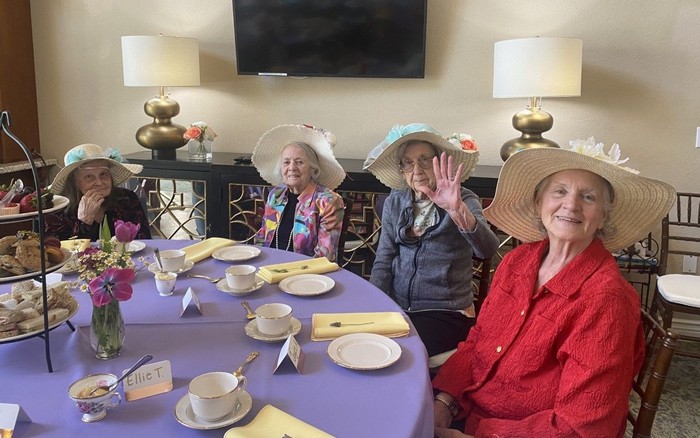
A year ago, Mother’s Day looked much different than it did this year – Zoom celebrations or phone calls took the place of hugs, flowers, brunch, and more for most. But now, with the majority of older adults having received their COVID-19 vaccinations, Mother’s Day 2021 marked the first major holiday with some semblance of normalcy for area seniors.
At Aegis Living Ventura, a local assisted living and memory care community, residents came together for a day-long Mother’s Day celebration and afternoon high tea event for all to enjoy.
“After witnessing the resilience of my residents during this past year, it warms my heart to honor them today and experience the pure joy in their faces as we celebrate Mother’s Day,” said general manager Sam EL-Rabaa on Sunday.
The morning kicked off with salon appointments for all. Residents enjoyed hair styling, manicures, and makeup so they would look their best for the afternoon tea. Each resident attending high tea received a rose and a beautiful hat adorned with flowers when they arrived. The Aegis team served tea and sparkling wine along with light bites such as scones, pastries, sweet treats, and tea sandwiches. A local pianist played lovely tunes to top off the event.
Resident Donna Hassel commented that the day gave a “sense for what it was like a year ago to be with friends once again.” Another resident, Marilyn Wilson, noted, “I’ve been here 10 years and this, by far, is the best Mother’s Day event I’ve attended.”
This event was just the beginning of what Aegis Living hopes will be a lovely spring and summer, as well as an overall step back to normal this year. The community is enjoying daily group activities, residents are welcoming visitors once again, area outings are being planned, and much more. Nearly 100% of Aegis Living Ventura residents and 90% of staff are vaccinated.
“We’ve been waiting for this special day, and many more to come,” said EL-Rabaa. “We are even more grateful for the small things we are able to enjoy again – from dining together to visiting with family and talking with friends. Having a community-wide celebration was such a gift for residents and staff alike.”
5 Healthy Aging Tips Every Woman Should Know
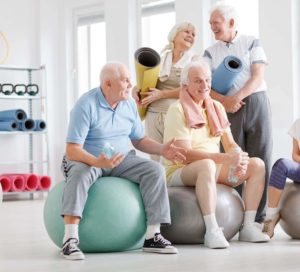
by National Council on Aging
As a woman, you may have many responsibilities on your plate, but your health should be a top priority.
Women are often the first line of defense when protecting their family’s health, but in doing so tend to put their concerns on the back burner.
These quick tips can help keep you happy and healthy as you juggle your everyday responsibilities.
1. Get breast cancer screenings every 1 – 2 years
One in eight women in the United States will be diagnosed with breast cancer, making it the most commonly diagnosed cancer in women and this risk increases with age. Mammograms are the best way to screen for breast cancer, especially during the early stages. The good news is that breast cancer can usually be treated successfully when found early. Medicare covers a free yearly mammogram screening. Learn more about how to prepare and what to expect during the exam.
2. Routine pap exams are the best way to detect cervical cancer
Known as the “silent killer,” cervical cancer is one of the most common types of cancer for American women, but thanks to widespread use of the Pap test, early detection has significantly improved and boosted U.S. survival rates. Cervical cancer may not have any signs or symptoms, so it’s recommended women ages 21 to 65 get routine test about every three years. Medicare covers cervical and vaginal cancer screenings once every 24 months or every 12 months if you are at high risk.
3. Exercise will improve your overall health
Roughly 150 minutes (2.5 hours) of moderate exercise a week could improve not only your physical but also mental health. Being active helps improve moods and reduce feelings of depression. It can also help manage diabetes, heart disease, and osteoporosis.
4. Focus on your mental health
Approximately 15% of adults aged 60 and over suffer from a mental illness, depression being one of the most common. There’s often confusion around what exactly depression is, especially since many older adults experience major changes in their life like the death of loved ones or medical problems that could cause sadness. The difference is that the feeling is only temporary. If your feelings of sadness begin to interfere with daily life and normal functioning, you may be experiencing depression. Start by speaking with your doctor and determine if a Medicare depression screening is right for you.
5. Healthy eating can prevent serious health conditions
Proper nutrition is essential for the body. As you get older you lose muscle mass, bone density, and burn fewer calories. It takes extra effort to make up for the natural changes of your body which is why eating high nutrient foods make a big difference. Decreased bone density can result in one of the major health concerns affecting about 8 million women, osteoporosis, due to calcium deficiencies in diet.
As a woman, you may have many responsibilities on your plate, but your health should be a top priority.
Tips for people with Dementia
People with dementia experience a range of symptoms related to changes in thinking, remembering, reasoning, and behavior. Living with dementia presents unique challenges, but there are steps you can take to help now and in the future.
Alzheimer’s disease and related dementias get worse over time. Even simple everyday activities can become difficult to complete. To help cope with changes in memory and thinking, consider strategies that can make daily tasks easier. Try to adopt them early on so you will have more time to adjust. You can:
- Write down to-do lists, appointments, and events in a notebook or calendar.
- Set up automated bill payments and consider asking someone you trust to help manage your finances.
- Have your groceries delivered.
- Manage your medications with a weekly pillbox, a pillbox with reminders (like an alarm), or a medication dispenser.
- Ask your doctor to provide a care plan and write down care directions (or have a family member or friend take notes during the visit).
Sleep Tips for People Living With Dementia
Dementia often changes a person’s sleeping habits. You may sleep a lot, or not enough, and wake up many times during the night. Poor sleep quality can make dementia symptoms worse.
Follow a regular schedule by going to sleep and getting up at the same time each day, even on weekends or when traveling.
Develop a relaxing bedtime routine with lowered lights, cool temperature, and no electronic screens.
Avoid caffeine and naps late in the day.
Have a lamp that’s easy to reach and turn on, a nightlight in the hallway or bathroom, and a flashlight nearby.
Keep a telephone with emergency numbers by your bed.
Talk to your doctor if you have problems sleeping.
Healthy and Active Lifestyle Tips for People Living With Dementia
Participating in activities you enjoy and getting exercise may help you feel better, stay social, maintain a healthy weight, and have regular sleep habits.
Try to be physically active for at least 30 minutes on most or all days of the week. But be realistic about how much activity you can do at one time. Several short “mini-workouts” may be best.
Aim for a mix of exercise types — endurance, strength, balance, and flexibility. For example, you could do a mix of walking or dancing, lifting weights, standing on one foot, and stretching. Even everyday activities like household chores and gardening help you stay active.
Your diet may need to change as dementia progresses to maintain a healthy weight. Talk with your doctor about the best diet for you, and choose nutritious foods such as fruits and vegetables, whole grains, and lean sources of protein and dairy products. Avoid added sugars, saturated fats, and sodium.
Stay social by talking on the phone with family and friends, joining an online support group, or going for a walk in your neighborhood.
Finding Care and Support: Tips for People Living With Dementia
Many people may be able to help in different ways. These people might include family members, friends, professional caregivers, community organizations, and others with dementia. For example, you can:
Ask friends or family to help with needs like cooking, paying bills, transportation, or shopping.
If you live alone, find people you trust who can visit often.
Consider letting trusted neighbors know of your diagnosis so they can help if needed.
Use social service agencies, local nonprofits, and Area Agencies on Aging to connect with in-home help, transportation, meals, and other services.
Fraud schemes related to the novel coronavirus
The U.S. Department of Health and Human Services Office of Inspector General is alerting the public about fraud schemes related to the novel coronavirus (COVID-19).
The U.S. Department of Health and Human Services Office of Inspector General is alerting the public about fraud schemes related to the novel coronavirus (COVID-19). Scammers are using telemarketing calls, text messages, social media platforms, and door-to-door visits to perpetrate COVID-19-related scams.
Fraudsters are offering COVID-19 tests, HHS grants, and Medicare prescription cards in exchange for personal details, including Medicare information. However, these services are unapproved and illegitimate.
These scammers use the coronavirus pandemic to benefit themselves, and beneficiaries face potential harm. The personal information collected can be used to fraudulently bill federal health care programs and commit medical identity theft.
Protect Yourself
Be cautious of COVID-19 survey scams. Do not give your personal, medical, or financial information to anyone claiming to offer money or gifts in exchange for your participation in a COVID-19 vaccine survey.
Be mindful of how you dispose of COVID-19 materials such as syringes, vials, vial container boxes, vaccination record cards, and shipment or tracking records. Improper disposal of these items could be used by bad actors to commit fraud.
Offers to purchase COVID-19 vaccination cards are scams. Valid proof of COVID-19 vaccination can only be provided to individuals by legitimate providers administering vaccines.
Photos of COVID-19 vaccination cards should not be shared on social media. Posting content that includes your date of birth, health care details or other personally identifiable information can be used to steal your identity.
Be vigilant and protect yourself from potential fraud concerning COVID-19 vaccines. You will not be asked for money to enhance your ranking for vaccine eligibility. Government and state officials will not call you to obtain personal information in order to receive the vaccine.
Beneficiaries should be cautious of unsolicited requests for their personal, medical, and financial information. Medicare will not call beneficiaries to offer COVID-19 related products, services, or benefit review.
Be suspicious of any unexpected calls or visitors offering COVID-19 tests or supplies. If you receive a suspicious call, hang up immediately.
Do not respond to, or open hyperlinks in, text messages about COVID-19 from unknown individuals.
Ignore offers or advertisements for COVID-19 testing or treatments on social media sites. If you make an appointment for a COVID-19 test online, make sure the location is an official testing site.
Do not give your personal or financial information to anyone claiming to offer HHS grants related to COVID-19.
Be aware of scammers pretending to be COVID-19 contact tracers. Legitimate contact tracers will never ask for your Medicare number, financial information, or attempt to set up a COVID-19 test for you and collect payment information for the test.
If you suspect COVID-19 health care fraud, report it immediately online or call 800-HHS-TIPS (800-447-8477).
Does listening to calming music at bedtime actually help you sleep?
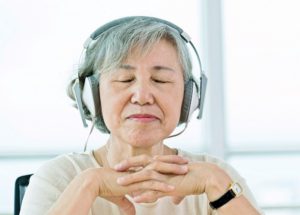
A new study published in the Journal of the American Geriatrics Society has found that listening to music can help older adults sleep better.
Researchers from the National Cheng Kung University Hospital in Taiwan combined the results of past studies to understand the effect that listening to music can have on the quality of older adults’ sleep. Their work suggests that:
Older adults (ages 60 and up) living at home sleep better when they listen to music for 30 minutes to one hour at bedtime.
Calm music improves older adults’ sleep quality better than rhythmic music does.
Older adults should listen to music for more than four weeks to see the most benefit from listening to music.
As we age, our sleep cycles change and make a good night’s sleep harder to achieve. What does it really mean to get a good night’s sleep? If you wake up rested and ready to start your day, you probably slept deeply the night before. But if you’re tired during the day, need coffee to keep you going, or wake up several times during the night, you may not be getting the deep sleep you need. According to the National Institute on Aging, older adults need seven to nine hours of sleep each night.
But studies have shown that 40 to 70 percent of older adults have sleep problems and over 40 percent have insomnia, meaning they wake up often during the night or too early in the morning. Sleep problems can make you feel irritable and depressed, can cause memory problems, and can even lead to falls or accidents.
For their study, the researchers searched for past studies that tested the effect of listening to music on older adults with sleep problems who live at home. They looked at five studies with 288 participants. Half of these people listened to music; the other half got the usual or no treatment for their sleep problems. People who were treated with music listened to either calming or rhythmic music for 30 minutes to one hour, over a period ranging from two days to three months. (Calming music has slow tempo of 60 to 80 beats per minute and a smooth melody, while rhythmic music is faster and louder.) All participants answered questions about how well they thought they were sleeping. Each participant ended up with a score between 0 and 21 for the quality of their sleep.
The researchers looked at the difference in average scores for:
People who listened to music compared to people who did not listen to music;
People who listened to calm music compared to people who listened to rhythmic music;
People who listened to music for less than four weeks compared to people who listened to music for more than four weeks.
Listening to calming music at bedtime improved sleep quality in older adults, and calming music was much better at improving sleep quality than rhythmic music. The researchers said that calming music may improve sleep by slowing your heart rate and breathing, and lowering your blood pressure.This, in turn helps lower your levels of stress and anxiety.
Researchers only looked at studies published in English and Chinese, meaning they may have missed studies in other languages on the effect of listening to music on sleep in older adults.
Results may not apply to older adults with Alzheimer’s disease or Parkinson’s disease.
In the studies researchers used, people who listened to music received more attention from researchers than did people who got standard or no treatment for their sleep problems. This means that sleep improvements in the music therapy group could be due to that extra attention.
Since the different studies used different kinds of music, researchers could not single out which type of calming music improved sleep the most.
All of the people in the study had similar kinds of sleep problems. This means listening to music may not help people with other kinds of sleep problems.
If you’re having trouble sleeping, listening to music can be a safe, effective, and easy way to help you fall and stay asleep. It may also reduce your need for medication to help you sleep.
Join the Letters of Support Campaign to provide older adults a message of encouragement and support
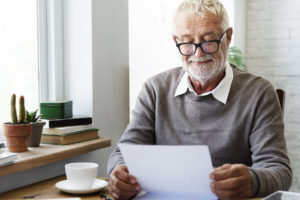
The Ventura County Area Agency on Aging (VCAAA) continues to seek letters of support and encouragement as part of the Letters of Support Campaign, which was launched in September in partnership with Meals on Wheels America. This campaign is designed to provide older adults and people with disabilities living in Ventura County with letters or cards and a message of encouragement and support.
More than 30,000 older adults in Ventura County are living alone, and the isolation, loneliness, and depression many of them are experiencing through the COVID-19 crisis has become as much of a threat to their overall health as the virus itself. The VCAAA recognizes that this is a critical time to extend not only our services to these populations, but also our care and support.
Since September, the VCAAA has received more than 9,000 letters from the community, including holiday greetings. The response has been inspiring, and the VCAAA asks that the community continue to come together to send letters to the VCAAA. Letters may be mailed to 646 County Square Drive, Suite 100, Ventura, Ca. 93003. Please notate Letters of Support Campaign on the envelope. All letters will be reviewed and then delivered with food boxes from the VCAAA’s COVID-19 pantry.
The VCAAA continues to encourage family members and neighbors to safely connect with loved ones who may benefit from similar letters of encouragement, and from support with grocery shopping or other errands. It is extremely important to keep open lines of communication to help minimize the isolation so many Ventura County residents are experiencing.
For more information, visit www.vcaaa.org or call (805) 477-7300.
The Ventura County Area Agency on Aging, an agency of the County of Ventura, is the principal agency in Ventura County charged with the responsibility to promote the development and implementation of a comprehensive coordinated system of care that enables older individuals, caregivers, and individuals with disabilities to live in a community-based setting and to advocate for the needs of those 60 years of age and older in the county, providing leadership and promoting citizen involvement in the planning process as well as in the delivery of services.
The VCAAA ElderHelp Transportation program, is able to provide transportation tickets to seniors (60+) and people with disabilities free of cost. The program provides Dial-A-Ride Tickets (i.e. paratransit) and/or Fixed Route Bus Tickets for non-emergency medical appointments, shopping, visiting family, etc. Limited, free transportation to medical appointments for low income and frail seniors, and/or disabled adults unable to use the bus (for example clients requiring gurney transportation) are also available. Additionally, the VCAAA provides Medi-Rides to older adults residing in assisted living facilities.
The objective of providing transit options is to help the populations we serve remain independent in their communities and sustain their mobility through changing circumstances. Using public transit or paratransit is a resourceful and environmentally conscious way to get around your city and throughout Ventura County.
COVID-19 Service Updates:
VCTC bus ticket provisions have been suspended as transportation providers have temporarily eliminated fares.
The VCAAA is currently offering transportation options to COVID-19 testing and vaccine appointments. These rides are available to those who are eligible for standard Medi-Rides.
For more information, or to request tickets, call the VCAAA at 805-477-7300
